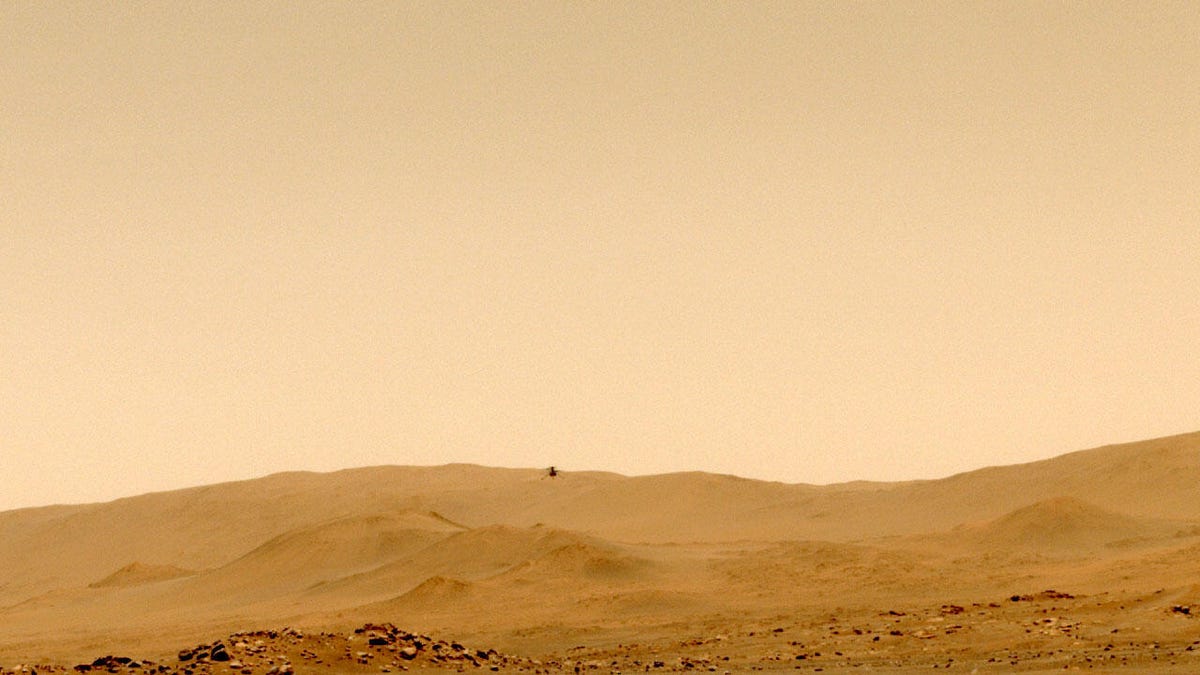NASA Mars Ingenuity helicopter successfully makes first one-way trip
With its fifth flight overall, Ingenuity also achieved an altitude record above the surface of Mars.

One of the navigation cameras aboard NASA's Mars Perseverance rover captured this image of the Ingenuity helicopter's fifth flight.
The Mars Ingenuity helicopter's new theme song should be Blondie's One Way or Another. NASA's rotorcraft made its very first one-way flight on Friday. Prior to that, the helicopter had acted like a homing pigeon by continually returning to the same Martian roost.
The flight began at 12:26 p.m. PT and lasted 108 seconds. Ingenuity flew to an altitude of about 16 feet (5 meters) above the surface and then traveled south 423 feet (129 meters) to a new airfield. Once it hit that mark, it achieved a height record of 33 feet (10 meters) to snap images of the terrain. Now, Ingenuity will wait for future instructions from mission controllers relayed via Perseverance.
Reaching new heights! The team celebrated the #MarsHelicopter’s latest flight. It climbed to a new height record of 33 ft (10 m) and had a flight time of 108 seconds. This one-way trip led us to a new base in the direction @NASAPersevere is heading. https://t.co/SCCKPvMEFl pic.twitter.com/KB28ET5bLW
— NASA JPL (@NASAJPL) May 8, 2021
The Ingenuity team used the rotorcraft's fourth flight to scout out the new landing spot, which NASA described in a statement as "flat as a pancake." The space agency doesn't want its experimental machine to touch down on rocks that might tilt it.
Ingenuity has been a star on Mars. It's completed a series of increasingly ambitious flights and will enter a new demonstration phase if the next flight succeeds. The helicopter team will focus on showing how it can be used to survey the landscape and assist the Perseverance rover in its own science mission.
NASA seems to be marveling at the helicopter's exploits. Ingenuity's mechanical engineering lead Josh Ravich wrote in an update: "Our helicopter is even more robust than we had hoped."
Follow CNET's 2021 Space Calendar to stay up to date with all the latest space news this year. You can even add it to your own Google Calendar.

